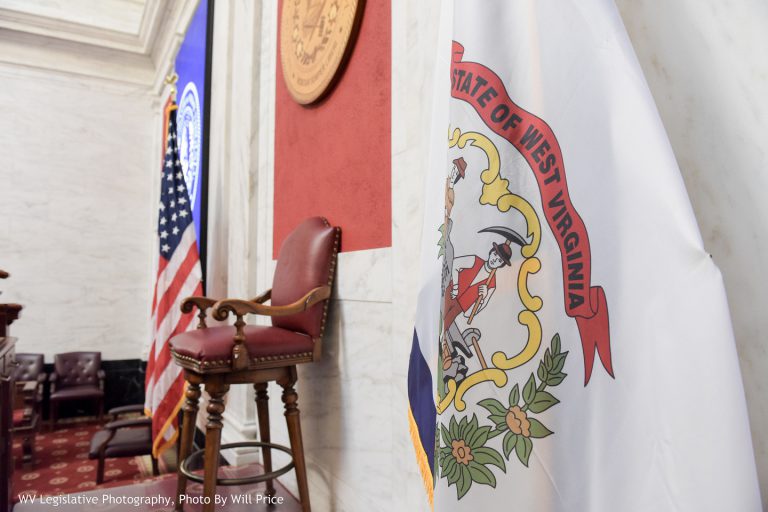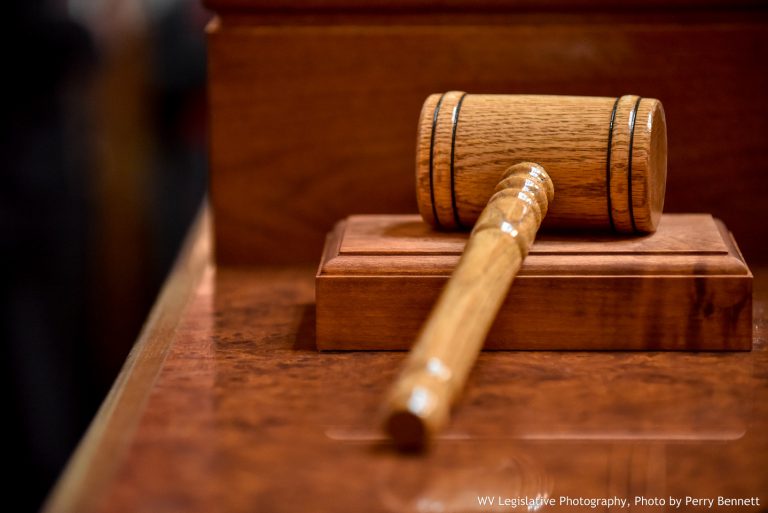As of 4 p.m., Wednesday, January 20, 2010, the eighth day of the 79th Legislature’s 2nd Regular Session, 281 bills have been introduced in the Senate. A sampling of bills introduced include:
Senate Bill 9 would allow Marshall University and West Virginia University to create “community schools” to serve as an alternative to normal public school education. Community schools would teach any grade K – 12 and would not charge tuition.
Senate Bill 24 would prohibit pharmacies from selling tobacco products of any kind. If a pharmacy violates this bill, their pharmacy license would not be eligible for renewal.
Senate Bill 37 would require the board of education to hire the most qualified person to supervise and regulate public school extracurricular activities.
Senate Bill 43 would allow police officers to run for political office in any municipality except for the one in which they work.
Senate Bill 52 would prohibit the use of a handheld cell phone while driving. Violations would be a secondary offense and would not result in points deducted from the offender’s license.
Senate Bill 58 would allow Sunday hunting on licensed hunting preserves, providing the hunter has all the necessary licenses.
Senate Bill 63 would allow mixed martial arts competitions to occur in West Virginia. Mixed martial arts is a full contact fighting sport that incorporates various fighting disciplines. The proposed legislation grants rule-making authority to the State Athletic Commission.
Senate Bill 83 would require the appropriate governmental entity to retain and preserve biological evidence found during an investigation for DNA testing. The evidence would be kept for the length of time a defendant remains in custody. The bill would also create a fine between $500 and $5,000, as well as possible imprisonment, for anyone who knowingly tampers with or destroys biological evidence.
Senate Bill 113 would require certain health insurance policies to cover acupuncture treatment performed by a licenced acupuncturist.
Senate Bill 115 would increase the state tax credit for citizens adopting a nonfamily member from $2,000 to $4,000.
Senate Bill 118 would require parent permission for any minor who wanted to use a tanning device including sun lamps, tanning beds and tanning booths. The parent would be required to sign a permission slip stating he/she has read and understood the dangers associated with tanning and agreeing the minor wear protective eyewear.
Senate Bill 145 would require insurers to cover the prevention, early detection, diagnosis and treatment of Autism disorder.
Senate Bill 176 would prohibit the installation of Automated Teller Machines (ATM) in establishments with video lottery machines. If the video lottery machine is in a building in which other businesses reside, the ATM cannot be within 50 feet of the video lottery machine.
Senate Bill 182 would discontinue tolls on the West Virginia Turnpike by 2020. This would happen as a result of the bonds required to build and maintain the turnpike being paid.
Senate Bill 218 would make inmates eligible for parole if they have completed an advanced rehabilitation plan. Eligible inmates must have no record of disciplinary rule violations, and must not be serving a sentence for a violent crime or a crime against a child. Previously, inmates had to serve either their minimum term or one fourth of their term before they were eligible for parole.
Senate Bill 231 would provide for a tax deduction for citizens who have spayed or neutered their pets. The deduction is limited to a maximum of three pets per household per year.
Senate Bill 234 would increase the penalties for corrections employees who have sexual relations with inmates. The mandatory jail sentence would change from between one and five years to between 10 and 25 years and the fine would increase from a maximum of $5,000 to a maximum of $10,000.
 The House convened today at noon to begin the Second Regular Session of the 79th Legislature. The first order of business was the adoption of House Concurrent Resolution 1 , which extended a formal invitation to the Governor to deliver the State of the State address tonight at 7 p.m.
The House convened today at noon to begin the Second Regular Session of the 79th Legislature. The first order of business was the adoption of House Concurrent Resolution 1 , which extended a formal invitation to the Governor to deliver the State of the State address tonight at 7 p.m. 

 CHARLESTON – Legislative leaders have approved a 3.4 percent cut to the Legislature’s current fiscal year budget, trimming more than $870,000.
CHARLESTON – Legislative leaders have approved a 3.4 percent cut to the Legislature’s current fiscal year budget, trimming more than $870,000.


 Interns for the 2010 Regular Session arrived at the Capitol today to begin their three- day orientation before starting their legislative working experience next week.
Interns for the 2010 Regular Session arrived at the Capitol today to begin their three- day orientation before starting their legislative working experience next week. Despite the freezing temperatures that have gripped West Virginia for much of the past couple weeks, lawmakers are set to heat things up inside the Capitol next week as they convene for January interim meetings and the start of the 2010 Regular Session.
Despite the freezing temperatures that have gripped West Virginia for much of the past couple weeks, lawmakers are set to heat things up inside the Capitol next week as they convene for January interim meetings and the start of the 2010 Regular Session. The Capitol was filled with the sounds of Christmas this afternoon when the St. Alban’s St. Francis School choir sang carols around the rotunda tree.
The Capitol was filled with the sounds of Christmas this afternoon when the St. Alban’s St. Francis School choir sang carols around the rotunda tree.  Speaker Rick Thompson today tapped Delegate Tim Miley (D-Harrison) to serve as the new Judiciary Committee Chairman, replacing the departed Delegate Carrie Webster. Previously, Delegate Miley had been serving as the Vice-Chair of the Judiciary Committee for the House of Delegates.
Speaker Rick Thompson today tapped Delegate Tim Miley (D-Harrison) to serve as the new Judiciary Committee Chairman, replacing the departed Delegate Carrie Webster. Previously, Delegate Miley had been serving as the Vice-Chair of the Judiciary Committee for the House of Delegates.  Legislators and staff heard from Cathy Slemp MD, MPH, the State Health Preparedness Director, regarding West Virginia’s efforts regarding its defense against the H1N1 flu virus during the December interim meeting of the
Legislators and staff heard from Cathy Slemp MD, MPH, the State Health Preparedness Director, regarding West Virginia’s efforts regarding its defense against the H1N1 flu virus during the December interim meeting of the